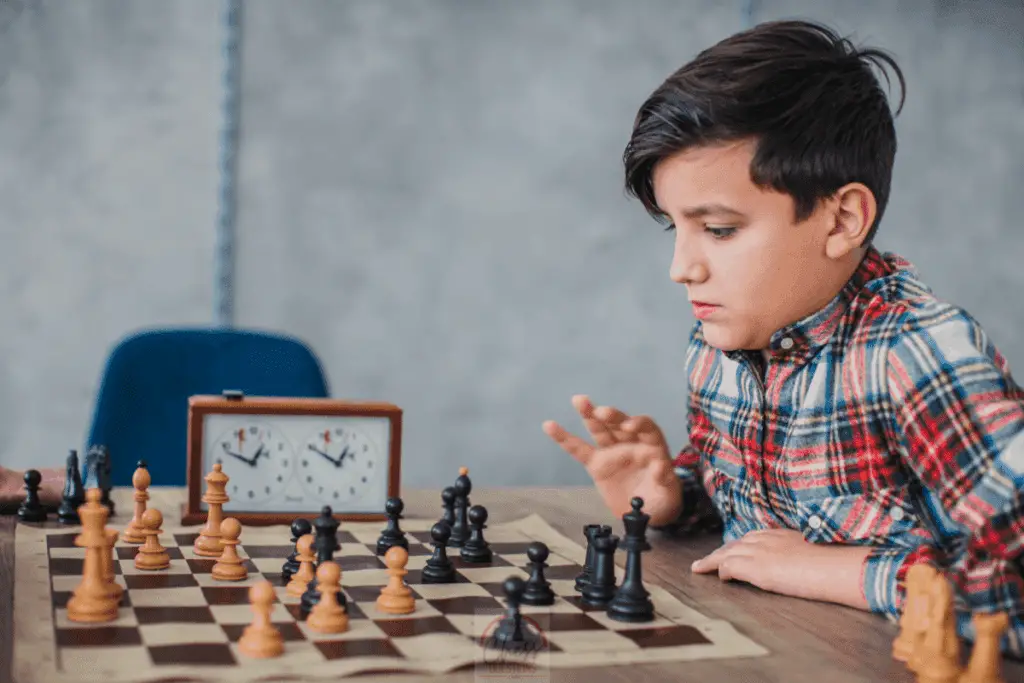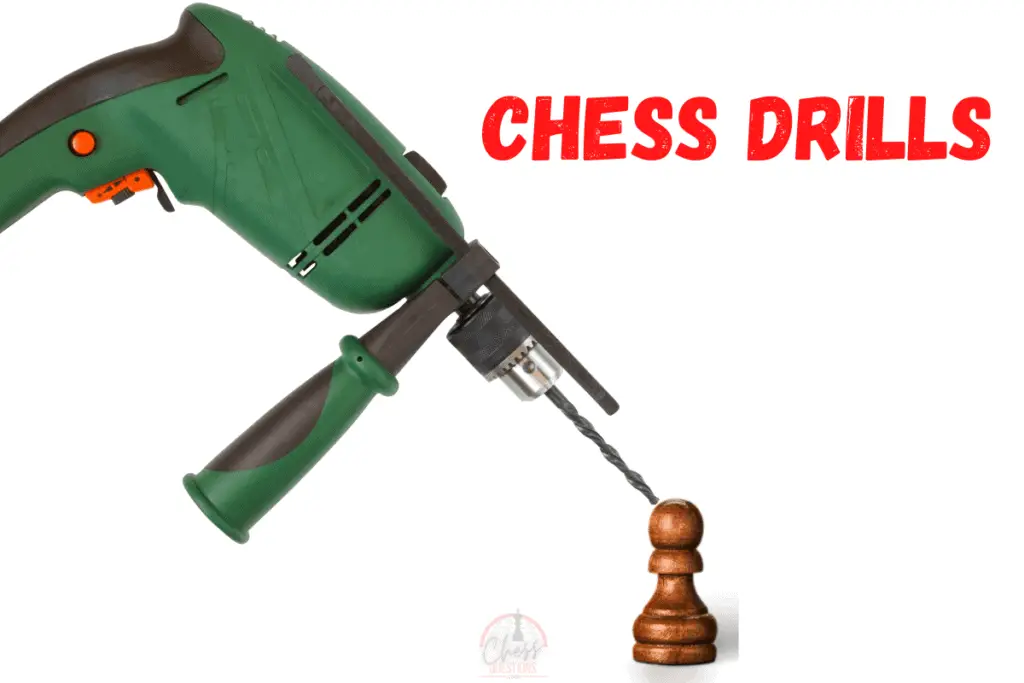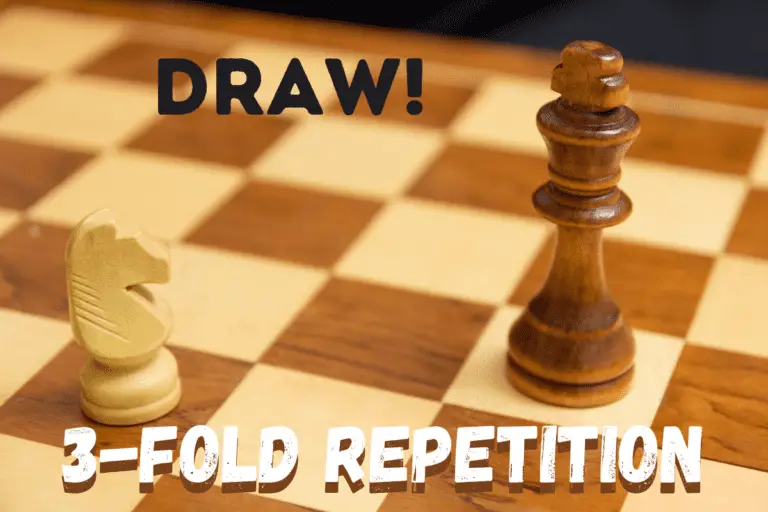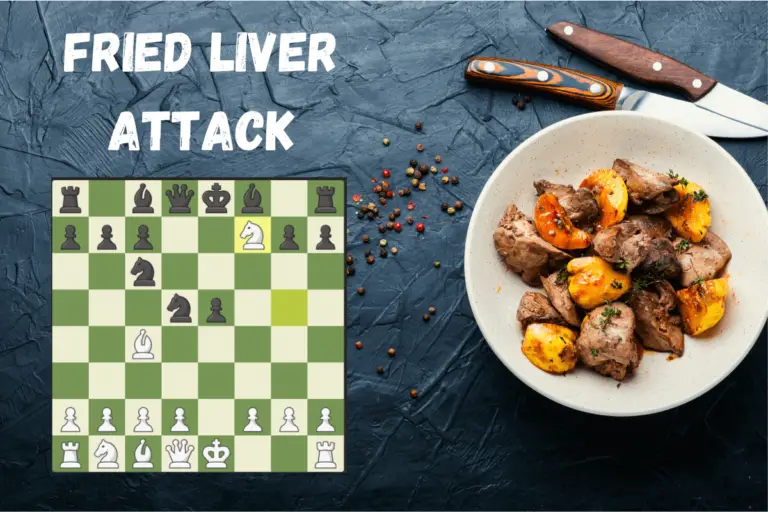7 Ways Playing Chess Against Yourself: (Options, Examples & Benefits)
⭐⭐⭐ Take 8 minutes to read and improve your chess game ➡️ : This article was first published on, and is Copyright of Chessquestions.com
If you are looking to play a game of chess, but don’t want to bother with the social aspect, playing one-player chess is for you. Playing chess by yourself can be just as fun and interesting as playing against someone else. In this post, I will explore seven options for playing chess alone, with some examples, and explain the benefits of playing chess against yourself.
Before we do that, let’s answer some common questions about one-player chess.
Can you Play Chess Alone?
If you choose to play chess by yourself, you can do so in a range of different ways. In this article, I am going to cover 7 ways to play chess on your own, including games, practice, and chess strategy. Go grab that queen and pop it on her own square.
- One Player Chess
- Puzzles
- Drills
- Solo Chess
- Lesson Practice
- Analyse Games
- Practice Openings
I will run through each of these options shortly, in a numbered list below, but just before, I do, let’s address the elephant in the room.
Why Play Chess on Your Own, These Days? There is No Need
It is true that there is virtually no need to play chess by yourself these days. With the advent of the internet and 20 years of chess site development, so long as you have an internet connection or mobile signal, you can play whenever and where ever you like, so why would you want to play chess by yourself?
Making chess moves by myself and playing black and white, moving around the table (Trying not to get dizzy) was a favorite pastime of mine when I was younger [pre internet in the 70s’] and no real chess opponent was available – The hardest challenge when playing both ides for me was trying to trick myself into making a mistake. Quite difficult given I knew what I was trying to do for each side!

But, it kept me occupied and out of the way. I just loved the chess set I had so much I wanted to play with it all the time, so when there was no one to play with, I would just set the pieces up, or grab a book and follow some lessons to improve my chess ability.
I think it has served me well, playing chess by yourself can be helpful though because it forces you to think through your move, and not just make one on impulse.
I like playing chess by myself again now though – I’m totally addicted! And it’s also good for people who are very competitive or highly strung which is difficult when they play against someone else because they can’t always control their emotions (like me). I can often get very frustrated when I make a silly mistake, or I suspect I am playing an online chess cheat, who seems to make the perfect move every time.
Playing alone will help calm the nerves too so that way there’s never a bad time to indulge without getting angry with an opponent.
My favorite thing about playing chess by myself is that I don’t have to worry about my moves being shown up by an opponent – which would happen all the time if we played live games of two-player chess.
Anyway, enough about me playing with myself, let’s move onto the ways you can play one-man chess and have fun and learn at the same time.
7 Ways to Play by Yourself
Before we go through each option, you probably noticed in the bullet list at the head of the page that, some of these items are not so much playing chess games alone, but rather playing, practicing, and learning chess on your own.
That’s cool too, putting all of these aspects together will not only keep you occupied, provide some chess entertainment without having socialized either face to face or online but will also help you get better at chess
So, let’ start things off by looking at some ideas of how you can play a game of chess on your own and make it both challenging and entertaining.
1. One Player Chess
One player chess played entirely on your own may seem like a daft thing to consider at first thought, after all, how can you compete against yourself when you know what moves you are going to make before the game even starts.
You can compete against yourself by playing an “AI” (artificial intelligence) chess set, which is a chess board with computer-generated opponents that will play at various levels of difficulty and provide some level of challenge for players who want it. This makes them one solid option if you’re looking into getting your own personal one player match without having someone else around to help you out!
I have a superb Chess Computer which I’ve recently bought. It is probably not the best one available on the market, but after getting frustrated with playing online sometimes, I quite liked the idea of having a real board that was intelligent at home and it is nice to actually have the pieces in my hand even when playing against the computer.
You could also set up a game on your own where you play a chess engine. So you could choose to be the black chess pieces and have the engine control the white or you could choose to go first with the white chess pieces. Either way, this is excellent chess practice on a proper board and will provide good practice time.
2. Puzzles
I have to give credit to the internet for my enjoyment of puzzles. When I was a much younger, I was never a fan of chess puzzles from a book, and the simple, and maybe silly reason for this was, I would have the book open, and try to recreate the puzzles on my chessboard. But all the time, the book kept closing shut and I had to search for the page again and it used to drive me mad.
Being able to scoot through the puzzles online is so much easier, so whilst you may have to go online, if you cant get hold of any chess books with puzzles in, you are still playing chess on your own in completing these tests.
Chess puzzles can be a great way to improve your chess, and the puzzles are not of an overly difficult level.
3. Drills

Chess drills could be the best way to play chess by yourself. Available on chess.com drills provide a way to play alone and practice and improve you chess skills.
- Play Key Positions vs The Computer
- Strengthen Tactical Decisions
- Improve Positional Play
Once you have learned lots of lessons on chess, Drills are practical tests based on everything you will have learned to get started in chess.
The drill is played against a computer coach, do not expect an easy time of it, you will be expected to play at a pretty good level, but don;t worry your mistakes will be collected, pointed out and you can make further learning from playing them.
They are a different, more in-depth type of chess puzzle ideal or when you want to play chess against yourself. yes, you are up against a computer, but what you are doing is challenging your own abilities by trying to pass the drills.
Endgame practice and fundamentals are ley to being able to close out games, and Checkmates practice is available too. Attacking, defending, and gaining advantages, are all there to recognize and play out on your own.
4. Solo Chess
Solo chess can be fun, but can also be frustrating, so if you have decided to play chess on your own after getting uptight about losing a couple of online games, I would not recommend solo chess as an option.
Solo chess is a game that uses chess pieces but is not exactly like a game of chess per se. You’ll see maybe a couple of a few pieces, and what you have to do is make consecutive captures until only one piece remains.
No single piece can capture more than once, and if there is a King on the board it has to be the last captured piece.
5. Lesson Practice
Playing chess on your own and practicing lessons is key to getting good at chess.
You might think I should have put the practice in before drills, but the reason I didn’t is, it is interesting to go off to the drills and realize how much more there is to learn, so it is a good way to drive yourself back for more lessons
When playing chess on your own it is a good idea to perhaps break up the time you have given into sections to cover lessons, puzzles, and drills, as well as perhaps a single game against a computer opponent.
6. Analyse Games
From time to time I like to go back and analyze games that I have played in the past to improve my chess knowledge. As a premium member on chess.com this is something that is available and can be priceless in finding your mistakes and learning from them.
You can check your overall accuracy from a typical chess game and perhaps monitor it over time to see if you become consistently more accurate in your chess play. one would hope that you do.
If you see little improvement through your analysis, you should go back, try some more lessons, and drills and improve your game.
You could even put some time into learning chess notation in this area of time you put aside, it too will help your chess get better.
7. Practice Openings
It is easy to get too hung up on chess openings. Some people suggest they are one of the most important aspects of learning, chess and there is certainly an argument for learnings at least the basics, so you don’t fall into opening traps, or god forbid the scholar’s mate, but by the same token, don’t get too hung up on learning too many
There are literally hundreds of names ofter people, places and god knows what, and that’s before you start adding in the variations and extending to the gambits!!
Perhaps learn a dozen of so good openings to memory, both for white and black, consider both attacking and defensive openings too.
If you want to play chess alone for an hour one day, maybe spend 30 minutes looking at a couple of openings and then play a game using one.
Benefits of Playing Chess by Yourself
There is an endless list of benefits to playing chess against yourself, not least of which, sitting across from that opponent at the chess club who takes little pride in personal or oral hygiene!! Trust me, these guys do exist in clubs, I know from personal experience of having to sit across from one, who wanted to have the longest chess game ever. I lost. I resigned!!, I just couldn’t cope! Others include….
- Personal time to relax
- Dedicated time to learning and improving your chess game
- Don’t have to travel to the club
- No chance of losing rating points to an online cheat
- Self-Improvement
- Keeps your mind active
- Try new tactics and strategies before playing them for real
- Boosts Cognitive Skills
I hope this little light-hearted look at ways of playing chess by yourself has given you some ideas for putting some time aside and playing some one-man chess at times. Especially as part of the learning process playing chess alone can be invaluable in becoming a chess expert.
If you do spend a great deal of time each week playing opponents either face to face or in online chess games, try to chip some of that away and put an hour aside every few days for some solo chess, drills, puzzles, or just playing against yourself.
I guarantee you will see a difference when you return to online chess and over time, you will not be fighting to get your ratings up, it will just come without you feeling you are making any more effort.
The time you spend playing chess on your own will translate to better chess when you play against another chess player.
Happy Chessing.






